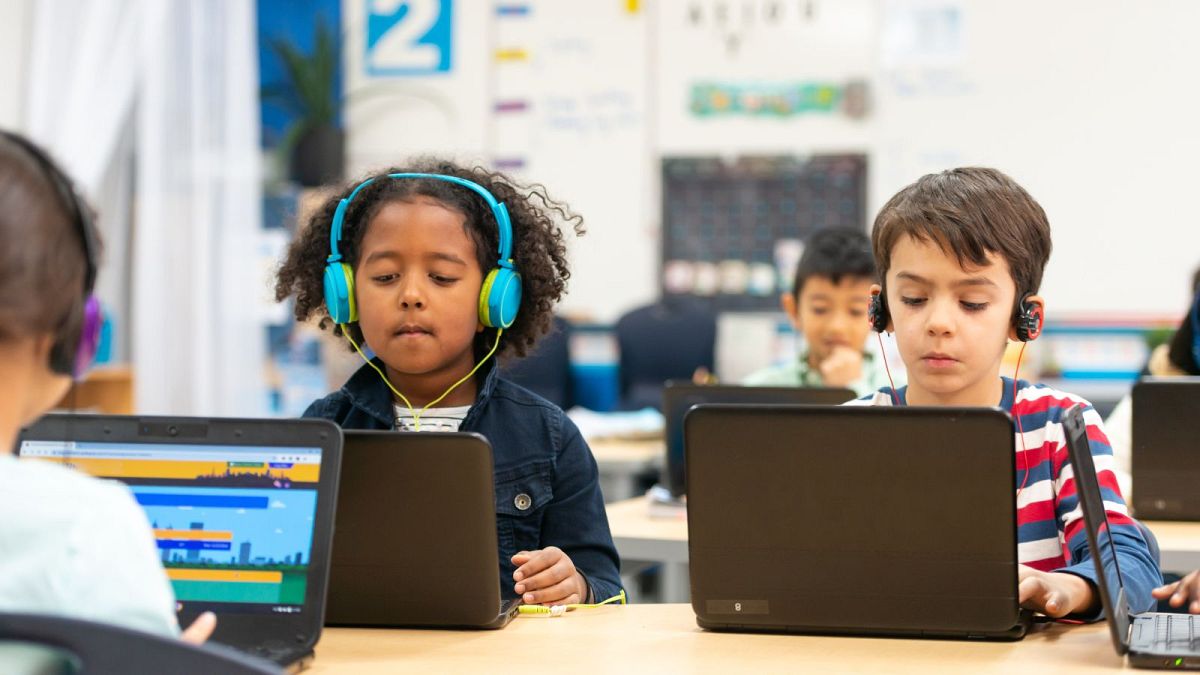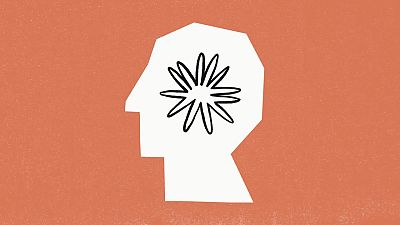A private tutoring company says their survey shows children are interested in learning about AI.
Are schools doing enough to prepare the students for the artificial intelligence (AI) revolution in Europe? A new report states that there’s a widening digital gap among European countries.
GoStudent, an education technology company offering private tutoring, surveyed 5,581 children aged 10 to 16 and their parents as well as 60 teachers across six European countries: Austria, Germany, France, Spain, Italy, and the UK.
Over half of the students (54 per cent) expressed the desire to start learning with AI, according to the survey, which the report attributes to the adoption of AI tools by the public such as chatbots like ChatGPT.
"Children want to learn about topics that prepare them for the future, including AI and VR, and express frustration that this is not immediately available to them," Felix Ohswald, GoStudent’s co-founder and CEO, said in a statement.
Technology development, such as AI and virtual and augmented reality, was listed by students and parents as a top study topic that will be needed in the future.
The report also noted that 35 per cent of children do not believe school is “teaching them the skills they need to do their dream job”. It also noted differences in technology access across European countries.
Addressing a digital gap
The report highlighted differences in IT resources at schools in Europe, with over 40 per cent of children having access to a tablet at schools in Austria and Germany, compared to 38 per cent in the UK, 35 per cent in Spain, 25 per cent in Italy, and 20 per cent in France.
The same trend can be observed regarding computers: while almost 7 in 10 children use one at schools in the UK and Spain, some 34 per cent in Italy and 49 per cent in France use computers in school.
"This is causing a technology gap that may push disadvantaged children further behind," according to GoStudent.
The European Commission called for a "massive boost in enabling digital education and providing digital skills" in April last year.
It urged EU countries "to support high-quality informatics in schools, to mainstream the development of digital skills for adults, and to address shortages in information technology professions by adopting inclusive strategies".
According to the GoStudent’s report, just half of the teachers interviewed use digital apps regularly despite over nine in 10 praising their effectiveness.
This difficulty in accessing technology comes in addition to ongoing teacher shortages in Europe which were aggravated by the pandemic and are "particularly severe in science, technology, engineering, mathematics (STEM)," according to an EU report.
At a recent education technology conference in London, meanwhile, several companies presented products aimed at teaching kids about technology. Some of the companies said they thought it would be fundamental to teach AI to children.
An article from UNICEF's digital education global lead last year noted that while there is growing interest in the impact of AI on education, the technology presents both opportunities and challenges.
One key priority is to make sure AI technologies can support "children in emergencies and children outside of the formal school system," UNICEF's Frank van Cappelle said, adding that it should not replace teachers and should be made accessible to all.



